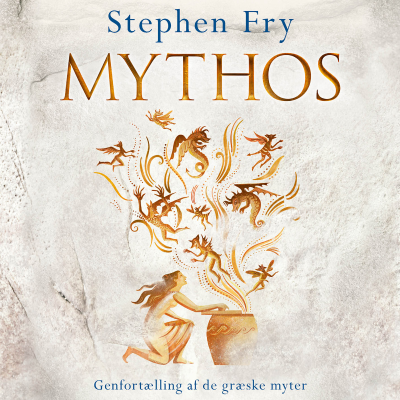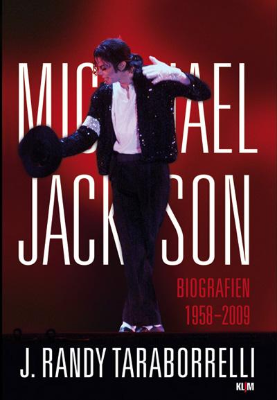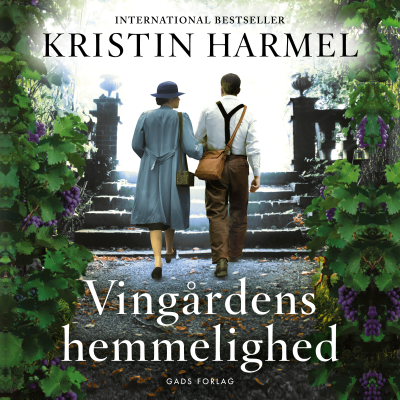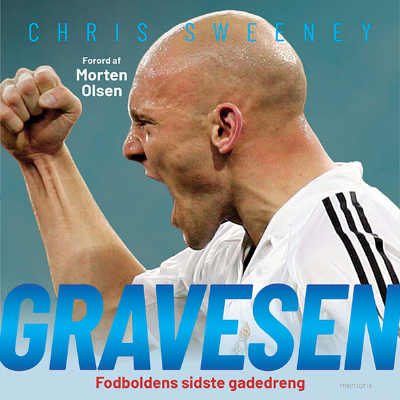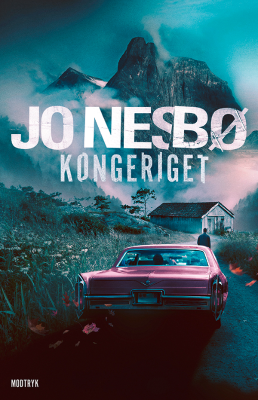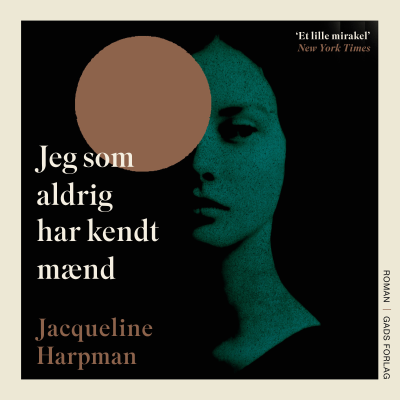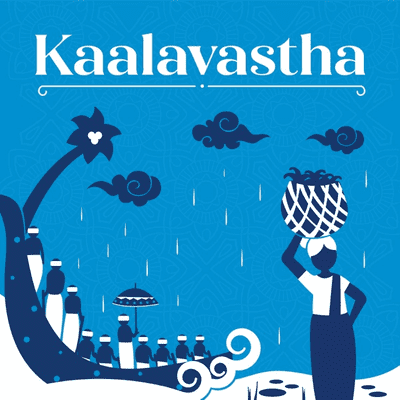
Kaalavastha: Kerala Podcast
engelsk
Business
Begrænset tilbud
2 måneder kun 19 kr.
Derefter 99 kr. / månedOpsig når som helst.
- 20 lydbogstimer pr. måned
- Podcasts kun på Podimo
- Gratis podcasts
Læs mere Kaalavastha: Kerala Podcast
Kaalavastha can be roughly translated as 'weather' in Malayalam. Monsoons in Kerala bathe the state in verdant splendor. Even as this tropical change is romanticized by Keralites, the monsoon of 2018 brings back painful memories of loss and destruction. With hundreds of lives lost and critical lifelines of the state adversely impacted, the tenacity and perseverance of the people of Kerala refused to bring the state to a halt. Instead, the floods gave an opportunity to pave the way for 'Nava Keralam'- a new Kerala on a path to a progressive development trajectory. This podcast series will introduce listeners to stories of resilience from the state.
Alle episoder
7 episoderKaalavastha
In this last and final episode of our 6-part series on climate change and the meaning of resilience, we delve into Kerala’s constant efforts to support social progress in parallel to its development journey. We look at the assets Kerala chose to develop preemptively, in anticipation of the next disaster: a strong and agile grassroot army of volunteers, robust women self-help avenues, detailed disaster risk management even at the local level, and most importantly pulling together lessons learnt from past disasters. It is the “proximity to the lived experience of disaster” after the 2018 Nipah virus outbreak and the devastating floods of 2018 and 2019 that has helped people act quickly and organize lasting frameworks for resilience. Will Kerala be able to address its vulnerabilities and protect itself for future generations? Thanks to Jose Shailaja Teacher, Sarada Muraleedharan, Mridul Eapen, Soumya Kapoor, Professor Jiju Ulahanan, Dr Sekhar Lukose Kuriakose, Bala Menon, Heather Fernandes, and Illika Sahu. Kaalavastha is narrated by Radhika Viswanathan. It is researched, written and produced by Radhika Viswanathan and Samyuktha Varma. Erwick D’souza composed the music. For more information go to https://www.worldbank.org/keralapodcast [https://www.worldbank.org/keralapodcast] or email keralapodcast@worldbankgroup.org [keralapodcast@worldbankgroup.org]
Fabric, Folklore, and Fish
Kerala’s economy relies heavily on things that are native and unique to the State - its natural resources, traditions, and heritage. It chose to skip the wave of industrialization, instead developing these other indigenous economies - the best known of which is tourism. Through some very clever marketing this tiny State has made itself a global destination. But even ‘God’s Own Country’ isn’t immune to the recent and successive natural disasters. Traditional sectors like handloom, fishing, and cultural tourism have suffered. Kerala has a strong ‘Responsible Tourism’ mission, committing to economic empowerment, environmental, and social responsibility. A question is emerging: What institutional responses are needed to significantly protect and revive these native sectors, making them self-sustainable and resilient to future disasters and economic shocks? Thanks to Jose Dominic, Gopinath Parayil, Lakshmi Menon, Sreejith Jeevan, P Robin, Bala Menon, Heather Fernandes, and Illika Sahu. Kaalavastha is narrated by Radhika Viswanathan. It is researched, written and produced by Radhika Viswanathan and Samyuktha Varma. Erwick D’souza composed the music. For more information go to https://www.worldbank.org/keralapodcast [https://www.worldbank.org/keralapodcast] or email keralapodcast@worldbankgroup.org [keralapodcast@worldbankgroup.org] CC Attributions: Weaving mills and factories » Bhagalpur, silk weaving handlloom.wav by phonoflora Kerala-4.wav by xserra
Taking People Along
Over the last few years Kerala has been experiencing crop failures and productivity loss, exacerbated by the recent floods and landslides that severely damaged the agricultural sector. Climate change is affecting agrarian micro-climates, impacting predictability, yield, and increasing crop diseases. Something needs to change. But how do you overhaul one of the largest and oldest departments in the State, restructuring its entire operation to support resilience? It is a big, bold unprecedented action, but Kerala believes that this is what it needs to do to make agriculture thrive. Kerala is reorganizing its agricultural practices based on agro-ecological zones, and with it bringing in array of other agricultural solutions: agri-insurance to protect its farmers, agritech to build resilience to climate shocks, and extensive marketing and traceability to strengthen supply chains – all to build the resilience of agricultural practices and livelihoods, as well as build Agriculture’s resilience to climate change Thanks to Mr DK Singh, Suma Vishnudas, Viju B and Vinayak Ghatate, Bala Menon, Heather Fernandes, and Illika Sahu.Kaalavasthais narrated by Radhika Viswanathan. It is researched, written and produced by Radhika Viswanathan and Samyuktha Varma. Erwick D’souza composed the music. For more information go tohttps://www.worldbank.org/keralapodcast [https://www.worldbank.org/keralapodcast]or emailkeralapodcast@worldbankgroup.org [keralapodcast@worldbankgroup.org] Attributions: Freesound.org: Frogmouth.wav - shyamal Augustin Vadakil story taken from “Climate change in Wayanad, Kerala: ‘Farming only makes sense if it is a hobby’” by People’s Archive of Rural India (CC license): https://www.youtube.com/watch?v=6PnYorPhm0E&feature=emb_title Cheruvayil Raman audio from Thanima 2 at NITC 2017, Invited talk by Mr.Cheruvayal Raman: https://www.youtube.com/watch?v=5aIdgiBun7A
Two Flows
Following the theme laid out in episode 1 and 2 on prioritizing environmental consciousness, in this episode we look into how Kerala’s new resilience building activities are integrating this priority into its two most important resources, rivers and remittances. The rapid and recent urbanization of Kerala has put stresses on the consumption of both resources. The flow of remittances into the State brought with it a construction boom. This in turn changed land use to accommodate new personal residences and hotels and the subsequent increase in consumption of water. Rivers eroded, braided, and broke their banks due to obstructions, sand mining and silt deposition from the building activities and groundwater depleted from consumption. Kerala is already acquainted with the effects of climate change, and this makes the need for river and water management even more critical. Therefore, how can we tap into the two resource flows of rivers and remittances, and do so responsibly and productively? Can we leverage remittances so that they are lucrative for the private investor as well as productive for public good? Thanks to Anil Das, Dilip Ratha, Thomas Mathew, VD Satheesan, Dr V Venu, Bala Menon, Heather Fernandes, and Illika Sahu.Kaalavasthais narrated by Radhika Viswanathan. It is researched, written and produced by Radhika Viswanathan and Samyuktha Varma. Erwick D’souza composed the music. For more information go tohttps://www.worldbank.org/keralapodcast [https://www.worldbank.org/keralapodcast]or emailkeralapodcast@worldbankgroup.org [keralapodcast@worldbankgroup.org]
If A River Doesn’t Flood, It Isn’t A River
The Great Flood of 1924 is often considered a landmark moment in Kerala’s history, such that people who experienced it anchor their memories in relation to this event. Smaller floods occurred in 61, 84, 94. Then 2018 brought with it a once-in-a-century flood, with three times more rain than the Great Flood. With the rains came destruction - loss of property, culture, livelihoods, and life. Kerala’s identity seems to have been irrevocably changed by these 2018 floods. The romance about the rain has been replaced by a wariness, but also a drive for real change to build resilience and the proof of what can be achieved through the community surge of action. In this episode we look into Kerala’s changing relationship with its water, land, and geography. Will Kerala be able to reconcile the pulls between planning for the environment and the price of development? Thanks to Viju B, Professor Srikumar Chattopadhyay, Sobha Viswanath, Sreeranganathan, Bala Menon, Heather Fernandes, and Illika Sahu.Kaalavasthais narrated by Radhika Viswanathan. It is researched, written and produced by Radhika Viswanathan and Samyuktha Varma. Erwick D’souza composed the music. For more information go tohttps://www.worldbank.org/keralapodcast [https://www.worldbank.org/keralapodcast]or emailkeralapodcast@worldbankgroup.org [keralapodcast@worldbankgroup.org] Attributions: The following sounds from Freesound.org are attributable under the Creative Commons Attribution License: HEAVY_SMASH_001.wav by JoelAudio; QUICK_SMASH_002.wav vy JoelAudio; QUICK_SMASH_001.wav vy JoelAudio; GRUNT_002.wav by JoelAudio; Waves in small rocky cavern.flac by Phistomefel
Vælg dit abonnement
Begrænset tilbud
Premium
20 timers lydbøger
Podcasts kun på Podimo
Gratis podcasts
Opsig når som helst
2 måneder kun 19 kr.
Derefter 99 kr. / måned
Premium Plus
100 timers lydbøger
Podcasts kun på Podimo
Gratis podcasts
Opsig når som helst
Prøv gratis i 7 dage
Derefter 129 kr. / måned
2 måneder kun 19 kr. Derefter 99 kr. / måned. Opsig når som helst.















